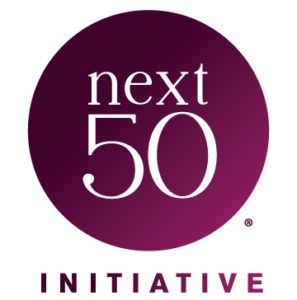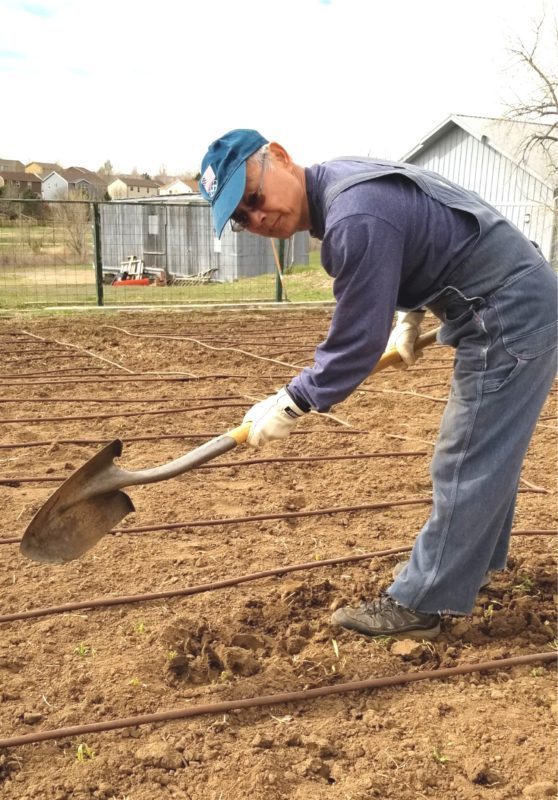By Benita Duran and Doug Linkhart
The National Civic League recently completed a two-year assistance program for four Colorado communities to improve engagement with ethnically and racially diverse older adult residents who may not traditionally engage with government-driven community programs for older adults.
 The need for this program was established several years ago, when a senior fellow for the League, Lindsay Miller, conducted a review of age-friendly plans from throughout the U.S. and concluded that most of the plans lacked a racial equity component. The plans seemed to be produced by agencies whose focus was aging but did not use an equity lens in designing their plans. Based on this research, the League proposed a program to the NextFifty Initiative, a Colorado-based foundation that supports efforts to improve the lives of older adults and their caregivers.
The need for this program was established several years ago, when a senior fellow for the League, Lindsay Miller, conducted a review of age-friendly plans from throughout the U.S. and concluded that most of the plans lacked a racial equity component. The plans seemed to be produced by agencies whose focus was aging but did not use an equity lens in designing their plans. Based on this research, the League proposed a program to the NextFifty Initiative, a Colorado-based foundation that supports efforts to improve the lives of older adults and their caregivers.
The League’s assistance program, “Enhancing the Equity and Inclusiveness of Age-friendly Initiatives,” was conducted in 2021-2022 and involved regional workshops on equity and inclusion in aging and assistance to four communities.
“Our goal is to transform the way our society views and experiences aging, and that influences the types of programs and projects we fund,” said Diana McFail, president and CEO of NextFifty Initiative. “National Civic League’s work with older adults aligns with our efforts to improve and sustain quality of life for people in their second 50 years.”
The League’s work to better align issues of equity into communities’ engagement with older adults focused on four areas of the state: Huerfano/Las Animas, Logan, Summit, and El Paso counties, all but the last of which are rural. The League’s work included a learning exchange cohort and use of an index developed by Lindsay Miller as part of her graduate capstone project.
During the two-year program, the League worked with a variety of stakeholders to co-create the program, including Colorado State Government offices, CSU Extension Program, county, and city staff teams. In addition to these partners, the program was also shaped by local thought leaders, including Innovations in Aging Collaborative, the Strategic Action Planning Group on Aging (SAPGA), and the Area Agencies on Aging directors in targeted counties.
This pilot program had two phases – Phase One: Guidance, and Phase Two: Local Coaching. Both segments concurrently began in January 2021, following a period of background research and conversations with the program partners, state and local organizations, and other aging professionals.
During the Guidance phase, the League conducted six equity training workshops for age-friendly communities and individuals working to improve the experience of aging. Workshop training included best practices on inclusively engaging older adults, applying an equity lens to aging work, training on racial equity foundations, and how to use the League’s updated evaluation tool – the Better Aging Civic Index – to measure a community’s level of engagement with older adults from all identities.
During the Local Coaching phase, the League provided direct assistance to the four focus communities. Three of the communities are members of Colorado AARP’s Age-Friendly network, and one community has joined with the goal to explore Age-Friendly designation. This phase has involved working with each focus community to apply an equity lens to their aging work and age-friendly planning, and to support each community to better engage with traditionally marginalized populations and those groups of older adults most often underrepresented in most civic affairs: communities of color, low-income populations, immigrant communities, people with disabilities, and LGBTQ+ communities.
Funding from NextFifty Initiative allowed the League to continue to reaffirm the strengths and contributions of older adults, particularly in this time when older adults who desire to live independently have been further isolated and disengaged due to COVID and slowed recovery efforts in many communities throughout the state. One tool for alleviating this social isolation is to better connect the older adults to services and civic affairs.
Four Communities Approach the Issue in Different Ways – El Paso, Huerfano/Las Animas, Logan and Summit
The four communities selected for participation in this program each had a set of unique challenges and approaches to addressing issues of equity and engagement of older adults in rural and geographically diverse communities. Approaches and strategies were tested in each area and, by the end of 2022, each of these communities had tailored an approach that has reached more diverse audiences in their respective areas.
The four communities involved in the program adopted extensive outreach efforts, reaching out to residents at county fairs, listening sessions, focus groups and outdoor festivals to ask residents for their involvement in completing a survey about age-friendly interests and to learn about programs of the county.
Some of these communities have seen an influx of new older residents to these communities. Many new residents whose second homes became their first homes during the pandemic, have relocated to places like Summit County – where mountain towns of Breckenridge, Dillion, Frisco, Silverthorne are located. El Paso County and Colorado Springs have seen new older residents involved in their public engagement processes throughout these past years of shaping their DEI visioning sessions and engaging community champions.
In contrast, Logan County has only one central business center, Sterling, and most of the county extends in the northeastern plains region of the state. In this area, there is a reliance on fairs and public events to try to reach older adults of the town of Sterling and the steering committee, which consisted of many volunteers, took great care to map the outreach efforts to cover all parts of the town. This community also created a “engagement thermometer” in the town square to measure and celebrate survey responses as they came in. Special efforts to reach Spanish-speaking older adults were tested and the group held its first Spanish-language focus group session last fall.
 Logan County’s program is largely run by Regional Extension Team at Colorado State University, which has been working to engage and build more awareness and trust between governmental systems and its residents. Huerfano and Las Animas Counties have unique challenges with older adults and a culture of independent living. In these and other communities in southern Colorado, many elders who identify as Chicanos and/or of Spanish descent, pride themselves in living alone in their homes – where they have lived and thrived for decades. In places like Walsenburg, “meeting people where they are” is the only way to further engagement.
Logan County’s program is largely run by Regional Extension Team at Colorado State University, which has been working to engage and build more awareness and trust between governmental systems and its residents. Huerfano and Las Animas Counties have unique challenges with older adults and a culture of independent living. In these and other communities in southern Colorado, many elders who identify as Chicanos and/or of Spanish descent, pride themselves in living alone in their homes – where they have lived and thrived for decades. In places like Walsenburg, “meeting people where they are” is the only way to further engagement.
Here are a couple of the common challenges observed in the counties.
- Bi-lingual communication – written and spoken
Most communities have used (or are using) a survey – print and online – to gain input from their community members. Many of the counties focused efforts on Spanish-speaking residents and recognized early that surveys would need to be in English and Spanish, and the responses that were in Spanish would need to be translated for data recording as well. Survey findings also needed to be available in Spanish and English. Events needed to have Spanish-speaking volunteers and staff members to communicate and build trust with residents who prefer to communicate in Spanish. The issues are not uncommon or unique to any one county but can be easily overlooked and not budgeted for when doing engagements of this nature.
- Time pressures, virtual realities, and volunteer limitations.
While communities and their county administrators are making great strides in recovery efforts throughout the state, it is evident that there are challenges in providing sufficient staffing and support systems. In the pre-Covid era, this wasn’t necessarily the case. It seems that programs related to aging have had a heavy reliance on volunteers for support and this is becoming a greater challenge as people are not as willing or able to give their time ‘for free,’ and are less inclined to zoom in for committee meetings.
It’s an exciting and challenging time to be working on age-friendly community and capacity building. As we know, each community is unique, and this program was designed to provide support and learning tools for communities to improve equity and inclusion and thereby improve the experience of aging for older adults.
Benita Duran is the League’s Senior Director for Equity and Engagement.
Doug Linkhart is League President.



